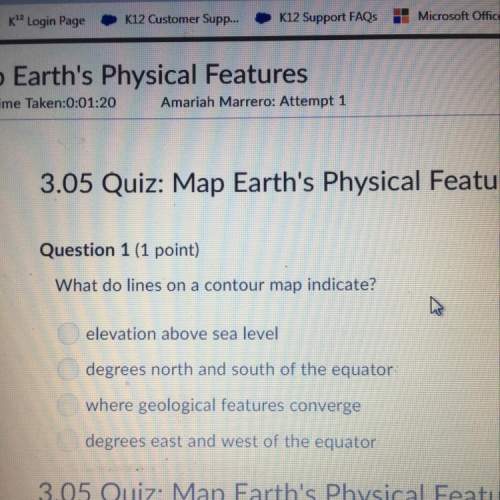
Chemistry, 11.09.2019 17:10 samjohnson2383
John hypothesized that dissolving salt into water produced a chemical reaction because of the salt completely disappeared in the water. he dissolved 10 grams of salt into 500 ml of pure water. after leaving the beaker in the sunlight a few days later, water completely disappeared and salt crystals were left in the bottom of the beaker. based on this observation, john knew his hypothesis was incorrect because

Answers: 3


Another question on Chemistry

Chemistry, 21.06.2019 20:10
Why is the vapor pressure of a warm lake higher than the vapor pressure of a cold lake? o a. warm water has a greater heat of vaporization. ob. warm water evaporates more quickly. cool water evaporates more quickly. od. cool water has a greater heat of vaporization.
Answers: 1

Chemistry, 22.06.2019 07:20
After watching the video "zinc strip in copper nitrate solution", and reading the instructions, click on the link labeled "start" just below the drawing of the pencil tip. follow the direction to complete the 3x3 grid. answer the below questions for the portion of the activity in which sn(s) is placed in agno3(aq)
Answers: 1

Chemistry, 22.06.2019 15:00
‘which reaction would most likely require the use of an inert electrode?
Answers: 1

Chemistry, 22.06.2019 18:00
Hydrogenation reactions, in which h2 and an "unsaturated" organic compound combine, are used in the food, fuel, and polymer industries. in the simplest case, ethene (c2h4) and h2 form ethane (c2h6). if 140 kj is given off per mole of c2h4 reacting, how much heat (in mj) is released when 12 kg of c2h6 forms?
Answers: 2
You know the right answer?
John hypothesized that dissolving salt into water produced a chemical reaction because of the salt c...
Questions


Mathematics, 28.01.2020 23:07

Mathematics, 28.01.2020 23:07

Mathematics, 28.01.2020 23:07





Mathematics, 28.01.2020 23:08



Mathematics, 28.01.2020 23:08


History, 28.01.2020 23:08

Mathematics, 28.01.2020 23:08

Mathematics, 28.01.2020 23:08

History, 28.01.2020 23:08



History, 28.01.2020 23:08




